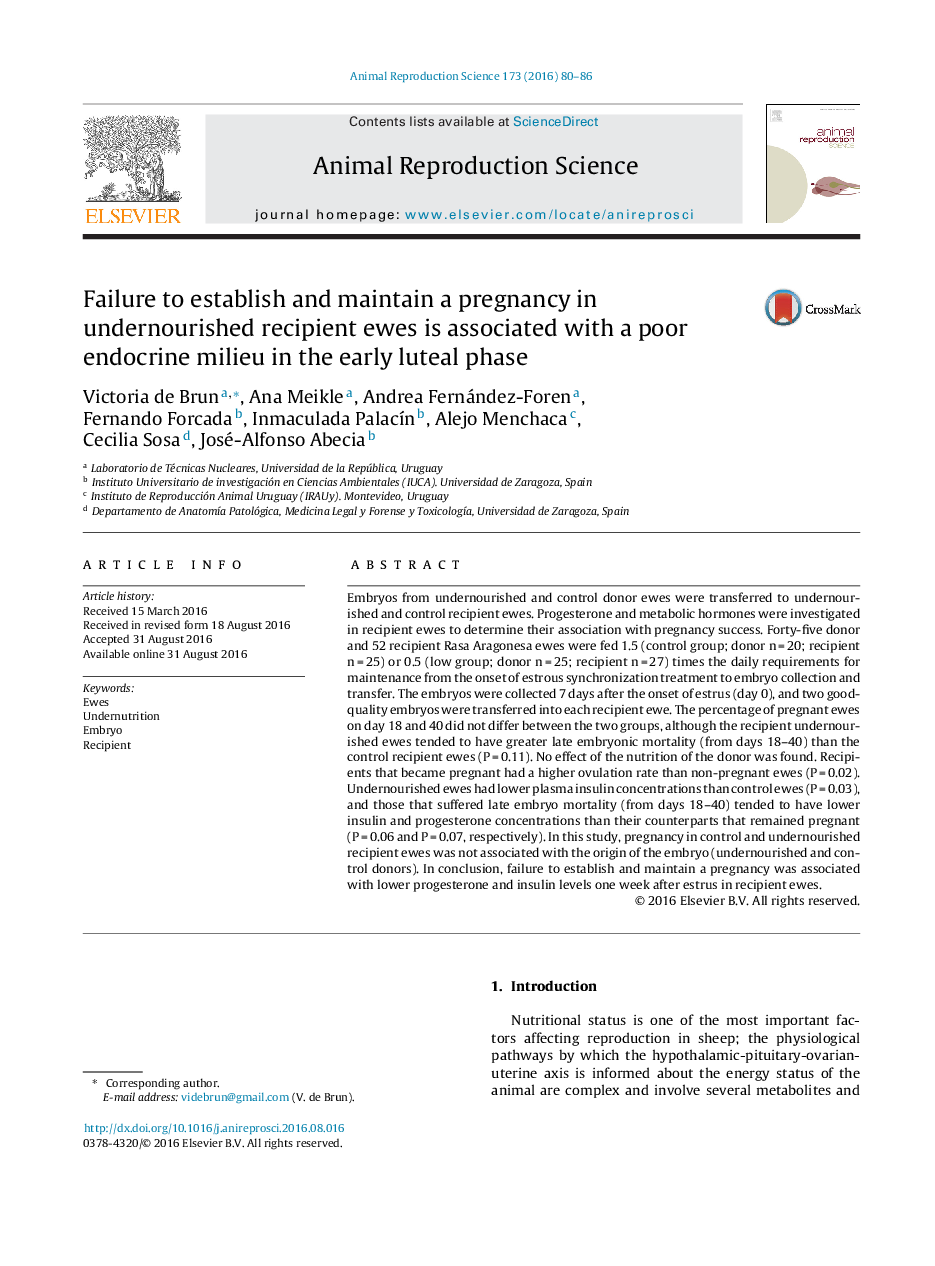| Article ID | Journal | Published Year | Pages | File Type |
|---|---|---|---|---|
| 5520389 | Animal Reproduction Science | 2016 | 7 Pages |
Embryos from undernourished and control donor ewes were transferred to undernourished and control recipient ewes. Progesterone and metabolic hormones were investigated in recipient ewes to determine their association with pregnancy success. Forty-five donor and 52 recipient Rasa Aragonesa ewes were fed 1.5 (control group; donor n = 20; recipient n = 25) or 0.5 (low group; donor n = 25; recipient n = 27) times the daily requirements for maintenance from the onset of estrous synchronization treatment to embryo collection and transfer. The embryos were collected 7 days after the onset of estrus (day 0), and two good-quality embryos were transferred into each recipient ewe. The percentage of pregnant ewes on day 18 and 40 did not differ between the two groups, although the recipient undernourished ewes tended to have greater late embryonic mortality (from days 18-40) than the control recipient ewes (P = 0.11). No effect of the nutrition of the donor was found. Recipients that became pregnant had a higher ovulation rate than non-pregnant ewes (P = 0.02). Undernourished ewes had lower plasma insulin concentrations than control ewes (P = 0.03), and those that suffered late embryo mortality (from days 18-40) tended to have lower insulin and progesterone concentrations than their counterparts that remained pregnant (P = 0.06 and P = 0.07, respectively). In this study, pregnancy in control and undernourished recipient ewes was not associated with the origin of the embryo (undernourished and control donors). In conclusion, failure to establish and maintain a pregnancy was associated with lower progesterone and insulin levels one week after estrus in recipient ewes.
